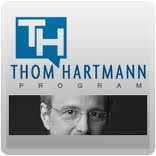 Imagine you’re a doctor at a clinic in New York City. You have a patient come in who’s in New York City on business. Their normal doctor is hundreds of miles away in California.
Imagine you’re a doctor at a clinic in New York City. You have a patient come in who’s in New York City on business. Their normal doctor is hundreds of miles away in California.
In order to treat the patient, you need access to their medical files from their doctor in California. But, you learn that those files are stored in a digital program that your clinic doesn’t use, making it next to impossible to get access to them, and to treat your patient.
This isn’t just some hypothetical situation. It’s a scenario that’s playing out all across America today thanks to the conservative ideology that says our public spaces, our commons, which should include our healthcare system, should instead be in the hands of for-profit companies.
All across the country, doctors and healthcare workers are finding it increasingly hard to treat patients, because of electronic health record systems that don’t share information with competing systems. The systems, which were installed to help reduce costs and improve patient care, have, in many cases, made patient care a nightmare.
In fact, as The New York Times points out, “two recent studies have found that fewer than half of the nation’s hospitals can transmit a patient care document, while only 14 percent of physicians can exchange patient data with outside hospitals or other providers.” But, the companies that make these systems are doing just fine, raking in billions of dollars in profit.
That’s where Epic Systems come in. Epic Systems is the Comcast of the electronic health records industry. Its systems hold the health records of nearly half of all Americans, and its founder, Judith R. Faulkner, is worth a staggering $2.3 billion. But, a report by the RAND Corporation found that Epic’s health records system makes it “challenging and costly for hospitals” to share information with other health record systems.
And then there’s the kicker that, when it is possible to share information, Epic charges fees for hospital and doctors to share that information. Those fees prove to be especially costly for hospitals, clinics, and doctors that serve rural and poor communities, and have smaller operating budgets. But they’re added profits for Ms. Faulkner and the rest of Epic’s executives.
So, while Epic Systems is getting richer and richer, doctors are finding it harder and harder to care for their patients. This is the classic tale of why privatization of the commons is bad for America. Rather than instantly turn things over to the highest bidder, we should instead be asking ourselves when it is and isn’t appropriate to privatize something.
It definitely isn’t appropriate to privatize when that something is part of the commons. Things like healthcare, education, roads, and even voting systems should never be put in the control of giant corporations that only care about making a buck. In the case of Epic and the privatization of Americans’ healthcare records, our government had a chance to step in, but didn’t.
During the debate over Obamacare, lawmakers in Washington could have established new national standards for the sharing of patient information, and cut out the need for private corporations like Epic to step in. They didn’t. Instead, Republicans thought the privatization route would be better for Americans. We’ve seen how well that turned out.
Even Faulkner, worth billions thanks to the decision to let private companies step in, told The New York Times that, “I’m not sure why the government doesn’t want to do some of the things that would be required for everybody to march together.” It’s because our lawmakers, almost exclusively Republican lawmakers, are addicted to letting private corporations take over our commons, so that they can add to their already staggering bottom-lines.
It doesn’t matter if our roads, healthcare, education systems, or even our right to vote suffer as a result. As long as those corporations are making money, that’s all that matters.
Despite what many in Washington might tell you, privatization is not the answer to all of our problems. In many cases, it’s the cause of them.
How Privatizing Medical Records Will Harm You
By Thom Hartmann A...



